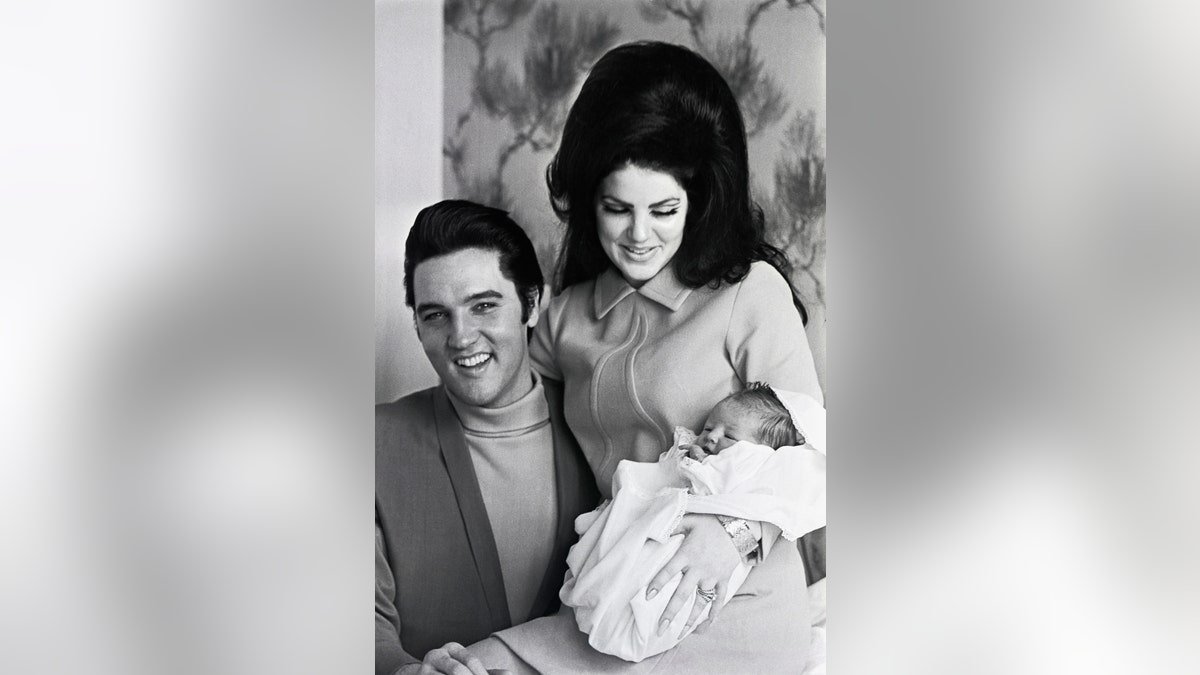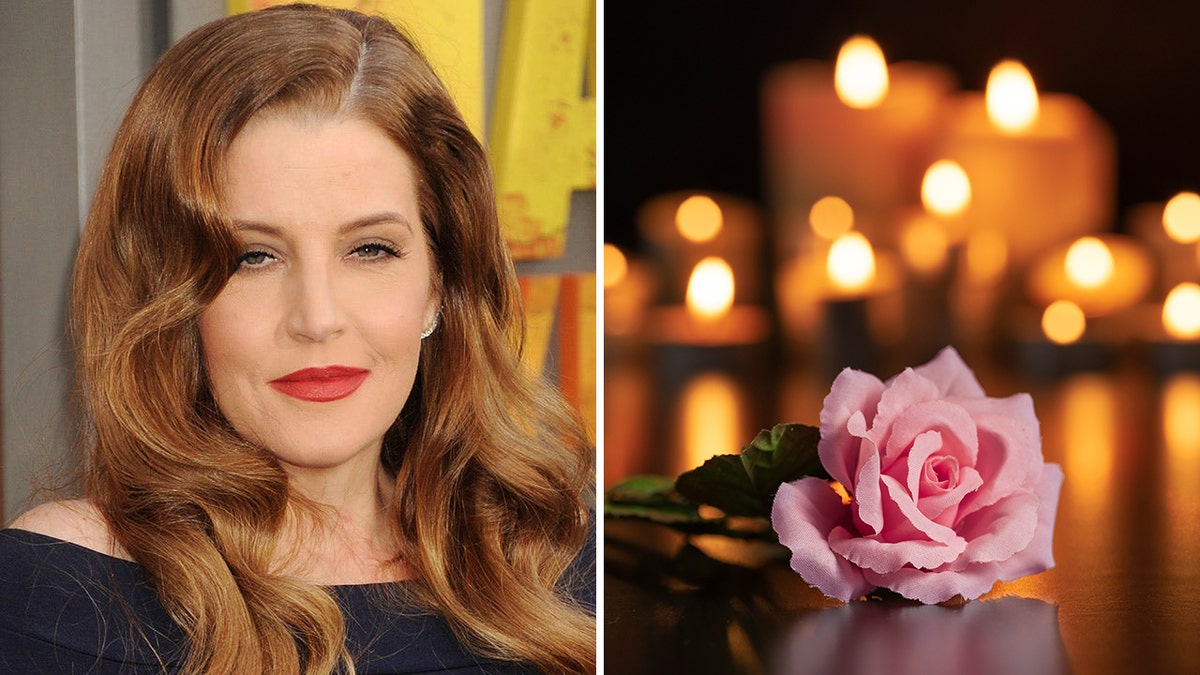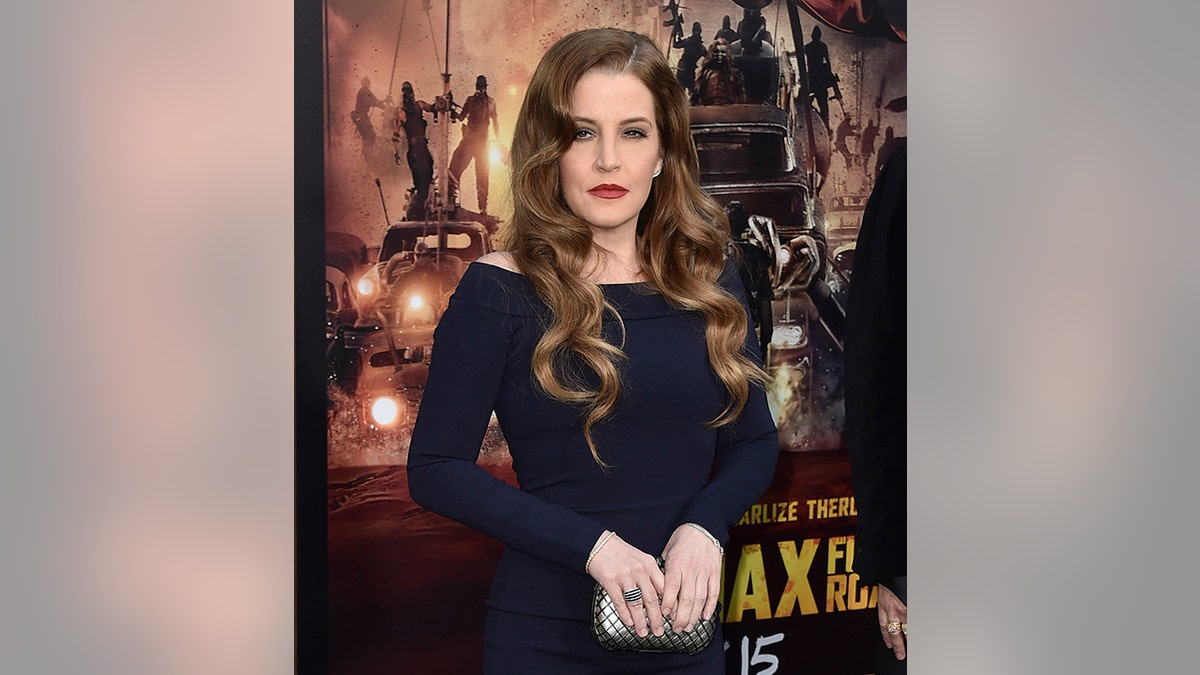Fans pay homage to Lisa Marie Presley at Graceland gates
Fans from New York stop by Graceland in Memphis to honor the passing of Lisa Marie Presley (Karen Pulfer Focht for Fox News Digital)
Lisa Marie Presley, the only child of icon Elvis Presley and his wife Priscilla Presley, died on Jan. 12 after paramedics responded to her home in an initial "not breathing" call, as Fox News Digital reported.
Tributes poured out on social media from both celebrities and average people alike who never met or knew Lisa Marie, who was 54 at the time of her passing.
Why do we grieve the passing of celebrities we've never met and don't know personally?
LISA MARIE PRESLEY, ELVIS AND PRISCILLA'S ONLY CHILD, DEAD AT 54
Social media may be just one reason we have a sense of closeness to celebrities, according to mental health experts.
With the onset of social media, we can get "glimpses into the lives of celebrities," said Dr. Natalie Bernstein, a psychologist in Pittsburgh, Pennsylvania.

Lisa Marie Presley is shown arriving at the 46th annual Country Music Awards at the Bridgestone Arena on Nov. 1, 2012, in Nashville. Presley, a singer and the only child of Elvis, died on Thursday, Jan. 12, 2023, after a hospitalization, according to her mother, Priscilla Presley. (Chris Pizzello/Invision/AP, File)
"We feel connected to them and may even feel as though we are even friends," Bernstein also said.
In the case of Lisa Marie Presley, many of us "felt like we knew her even before she was even born, and then we watched her grow up, too," said Bernstein.
She continued, "We begin to feel attached to [celebrities] in a way that feels normal, [by] watching videos and interviews and learning their preferences, like you would a friend."
HOW TO COPE WITH ‘COLLECTIVE GRIEF’ AFTER MASS TRAGEDY STRIKES
Bernstein noted that we "form ideas about who they are" and "integrate aspects of them into our lives" through their songs, movies and products.
"Grief is the experiencing of loss — no longer experiencing a person in our life," added Bernstein. "The absence can feel overwhelming and sad."
NEW YEAR, NEW DRAMA: WOMAN WONDERS IF SHE CAN ‘SNEAK OUT’ OF A FRIEND'S FATHER-DAUGHTER DANCE
We may feel "anxious," she also said — and those feelings can be "uncomfortable, because we realize we never truly knew them, but it felt as though we did."

Grief for those who have departed, whether we knew them or not, can feel "overwhelming and sad," said one mental health expert. (iStock)
We can even mourn for the lives that celebrities were unable to have, if they passed at a young age or had children, she said.
"Perhaps our personal experiences of grief and loss come into play," she said, noting that if we ourselves lost a parent at a young age, "we will really empathize for the deceased celebrity's child."
"Our favorite celebrities are often the people we identify with — we think they are like us and we are like them."
Another mental health expert based in New York agreed with Bernstein in terms of social media’s influence on reactions to celebrity deaths, saying that we share a celebrity's "good times and bad."
"Celebrities, especially in this day and age of ubiquitous social media, are 'America’s family,’" said Dr. Mark Sirkin, a clinical psychologist and associate dean of school of health professions at Long Island University in New York.

Elvis Presley and his wife, Priscilla Presley, welcomed Lisa Marie Presley on Feb. 1, 1968. Celebrities often feel like "America's family," noted one New York-based mental health expert. (Getty Images)
"The power of celebrity is known to us via the psychological mechanism of ‘identification,’" he said.
"Our favorite celebrities are often the people we identify with — we think they are like us and we are like them," he also said.
So when something happens to them, whether it's a tragedy, an accident or a death, "it is as if it happened to us or our own families," he said.
A celebrity death is a "collective reminder" that even "bigger-than-life" individuals have "only a short time here."
A California-based therapist said that we often "brush aside" the knowledge of our own mortality, and that a celebrity death is a "collective reminder" that even "bigger-than-life" individuals have "only a short time here."
Christine MacInnis, a licensed marriage and family therapist and owner of Transcends Family Therapy in Torrance, California, said that this sense of our mortality is "coupled with the fact that these individuals are entwined with our feel-good memories."

Rather than "judging yourself as ‘silly’" or feeling as though your grief" isn't justified" because you didn't personally know the celebrity who has passed, allow yourself to "feel the sadness," counseled one Pittsburgh-based psychologist. (Jeffrey Mayer/iStock)
The loss of the celebrity "is also a loss of what they represented to us, whether it be joy, laughter or excitement," she continued.
"For these reasons, it produces a feeling a grief that is the same as losing a close relative or friend."
"For decades, a celebrity may have been invited into our homes through the media — and likely feels familiar."
Another professional shared revelations about why we grieve when we lose someone we never even knew.
"Grief is a very normal emotional process," said Shannon O'Neill, PhD, a licensed psychologist and assistant professor in the department of psychology at the Icahn School of Medicine in the Mount Sinai Health System in New York.
And yes, she said, "it is absolutely possible to feel grief following the loss of someone you don’t know personally."

Lisa Marie Presley is shown arriving at the Los Angeles premiere of "Mad Max: Fury Road" at the TCL Chinese Theatre on May 7, 2015. Presley, singer and only child of Elvis, died on Jan. 12, 2023, at age 54. (Jordan Strauss/Invision/AP, File)
That's because "having access to someone’s life and sometimes intimate access to personal details of another individual — and following their life, whether through media or public events — can result in the feeling of having known them on a much more personal level."
She also said that "for decades, a celebrity may have been invited into our homes through the media — and likely feels familiar. The [person] may have been a constant, ever-present variable within one’s life.
"The exploration of why the individual may have been important to you can offer powerful insight into personal values."
And "once removed, it can feel as if something or someone is missing." She also said that "a celebrity’s life and legacy reflect a great deal of symbolism."
Noted Jayme Albin, PhD, a licensed psychologist and cognitive behavioral therapist in New York City, "Celebrities represent sources of ‘attachment figures‘ who fans are emotionally attached to."
So "when there’s a life-changing event, people who are fans relate in real ways," she also said.
CLICK HERE TO SIGN UP FOR OUR LIFESTYLE NEWSLETTER
Bernstein of Pennsylvania noted that rather than "judging yourself as being ‘silly’ or feeling as though your grief isn't justified because you didn't know" the celebrity personally — allow yourself to "feel the sadness."
CLICK HERE TO GET THE FOX NEWS APP
She added, "Reflect on what the celebrity meant to you, what his or her work gave you or brought to your life."
Added O'Neill on this same point, "If acknowledged willingly, grief can be informative, as it showcases what and whom are important to you. The exploration of why the individual may have been important to you can offer powerful insight into personal values."




